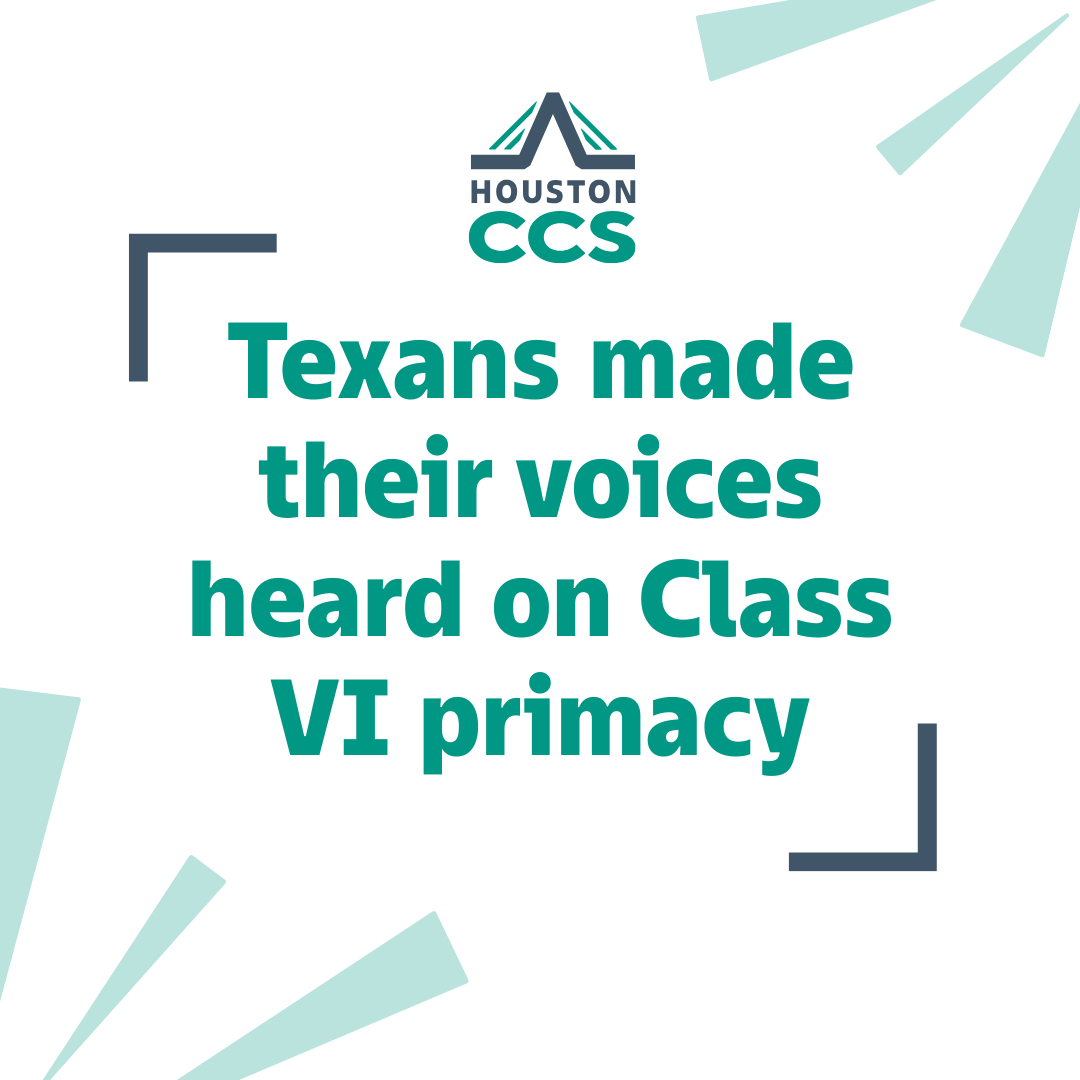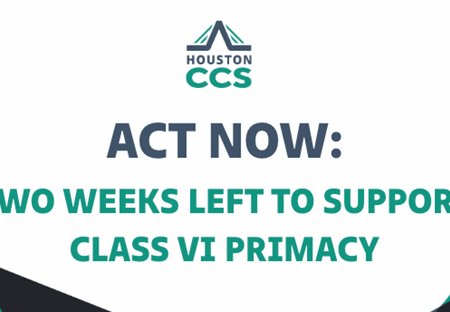Texans Made Their Voices Heard on CCS Primacy
The public comment period for Texas’ bid for Class VI primacy officially concluded on August 1, with Texans from across the state voicing their strong support for local control in advancing carbon capture and storage (CCS) development. Commentors underscored the far-reaching economic and environmental benefits CCS can bring to communities across Texas.
Over the past 45 days, Houston CCS Alliance supporters submitted more than 80 comments, including elected officials, academic leaders, and local business and industry associations. A virtual public hearing held on July 24 drew 68 people in support of the Texas Railroad Commission (TRRC) taking the lead on Class VI well permitting with compelling stories of how CCS could improve quality of life for their families and communities.
The comment period drew strong bipartisan support, with Texas Governor Greg Abbott, Senators Carol Alvarado and Brian Birdwell, Representative Brooks Landgraf, and numerous others submitting comments in favor of Class VI primacy.
Houston Mayor John Whitmire called it “a moment of significant economic opportunity,” citing projections of $60 billion in private investment, $33.4 million in new tax revenue, and $1.8 billion in overall economic impact.
State Representative Christian Manuel (D-22), emphasized the “measurable air quality improvements” CCS will bring for working families and fence-line communities throughout Southeast Texas.
Frances Castañeda Dyess, President of the Houston East End Chamber of Commerce, reiterated how local small businesses—from equipment suppliers to skilled trades—stand to gain from CCS development, and Elton Hollis, Co-Founder of the Golden Triangle Industrial Group, highlighted the potential for more than $1.3 billion in total economic benefits and 5,000 new jobs just in Jefferson County.
Academic leaders from our region’s universities and community colleges also voiced their support because of the significant opportunities to expand career pathways in a growing carbon management field. Dr. Ramanan Krishnamoorti, VP of Energy and Innovation at the University of Houston pointed to the state’s leadership in CCS research and Texas universities’ robust workforce training programs. Dr. Brenda Hellyer, Chancellor of San Jacinto College, noted that more than 1,300 students earned credentials aligned with high-demand energy careers last year, helping fill the pipeline for future CCS projects.
Another widely voiced theme was the advantages of local control, in which supporters emphasized the TRRC’s proven track record of safety and environmental stewardship. EHCMA Executive Director Mary Jane Mudd and State Rep. Ana Hernandez (D-143) highlighted the Commission’s century of experience regulating subsurface energy operations, while Glenn Hamer, President & CEO of the Texas Association of Business, reinforced the importance of local expertise in regulation: “This isn’t just about Texas—it’s about advancing shared national interests. Empowering Texas to manage CCS projects through Class VI primacy will strengthen America’s energy infrastructure, create high-quality jobs, and position the United States as a leader in emerging energy technologies,” Hamer said.
With the comment period now closed, the EPA will begin reviewing submissions and preparing a final decision, which could come as early as this fall. If approved, Texas would be the fifth state to be granted Class VI primacy authority—joining North Dakota, Wyoming, Louisiana, and West Virginia. When approved, primacy will support moving deserving CCS development forward in an efficient, timely manner, ensuring Texas remains the nation’s top energy producing state and a force for energy innovation.
Thanks to those who submitted comments, reposted our social content, and helped spread the word about this critical opportunity, Texas has a generational opportunity to grow our economy, create strong career pathways, and improve air quality through practical, science-based carbon management solutions.








